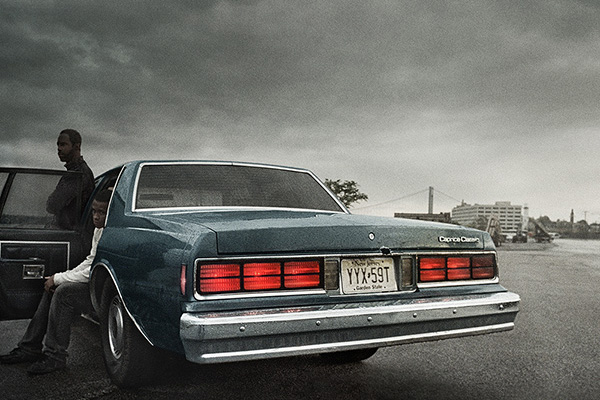
From “Spring Breakers” to “Pain & Gain” to “The Bling Ring,” 2013 has already seen many films that feature people turning to crime as a way to achieve their American dream. Like “The Bling Ring,” “Blue Caprice” similarly tracks a true crime tale — the 2002 Washington, D.C. sniper attacks that left 10 dead and three wounded. But “Caprice” aims the rifle inward toward its characters’ internalized feelings rather than their outward emotions. Even though the film aspires to study how one might develop into a serial killer, it’s a curiously uneventful film.
“Caprice” is an unusual character study because it never seems interested in just one character. The film’s focus is actually two characters — Lee Malvo (Tequan Richmond), an isolated Antiguan teenage runaway, and John Allen Muhammad (Isaiah Washington), a divorcee who has kidnapped his two children from their mother. John becomes a father figure to Lee, raising him on violence, and the two become closer in their quest for vengeance against those who have wronged them. Soon enough, John is recruiting Lee to embark on a series of dangerous sniper attacks intended to hurt not just the ones they love, but all of society.
Lee only accepts John’s deadly requests because John is the first adult who sees and understands his frustrations — together, they’re kindred spirits of violence. What is most disturbing about their relationship is how little John needs to do to provoke violence from Lee. John tells Lee the violence is for retribution, and Lee simply does as he is told.
The surrogate father-son relationship is the film’s most interesting element, but it’s curiously underexplored. Does John truly care for Lee, or is he taking advantage of the boy’s aggression? And how is Lee reacting to the increasingly horrible things he has to do? Director Alexandre Moors, making his feature debut, treats the two as absolutes — they stay the same people from beginning to end. His cold, clinical perspective simply doesn’t engage with the thorny emotional issues he’s implying.
Washington’s commanding portrayal of John is assured and terrifyingly complete, calmly plotting a reign of terror in the frozen food section of the supermarket. Richmond has enough presence to fill out Lee’s quiet, brooding character. The two of them, however, are braver than Moors. Mentioning an idea — be it the development of killers or the violence lurking beneath our culture — is not the same as engaging and exploring it, and Moors confuses the two.
The 90-minute film slowly drags on, and it doesn’t climax so much as grind to a standstill. By the end, John’s final goal is to wake up the people around him, to shake them out of complacency. Considering the monotony of the movie he’s in, he should start with “Blue Caprice.”
A version of this article appeared in the Thursday, Sep. 12 print edition. J.R. Hammerer is a staff writer. Email him at [email protected].






















































































































































